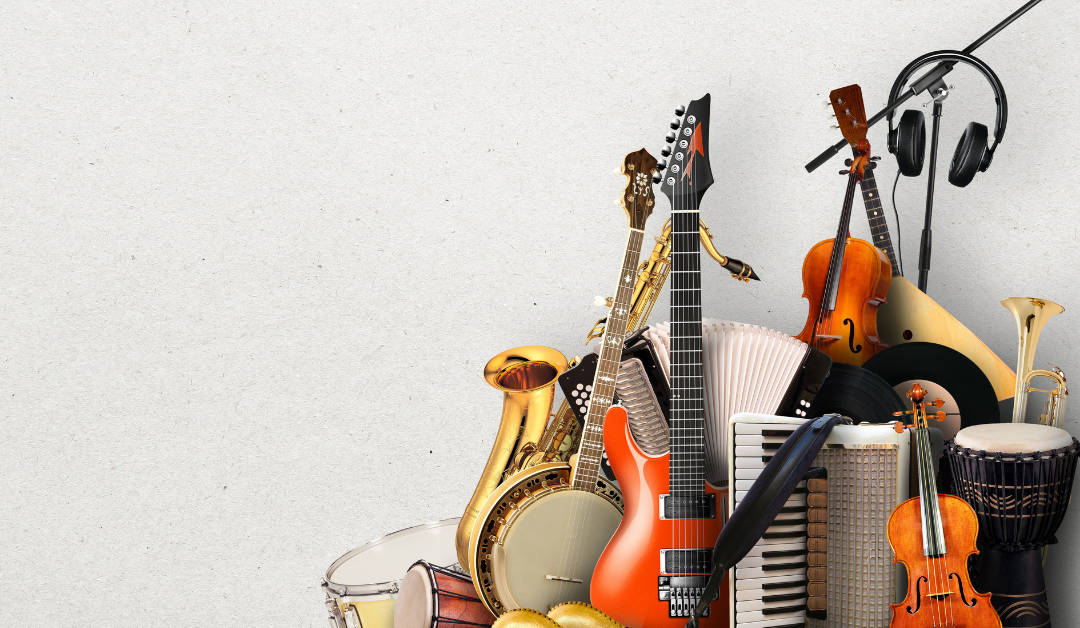Have you ever wondered how children learn on the same instrument as other family members instead of having to buy a new one? Chances are it is because the instrument was well cared for. Whether you have a guitar, violin, piano, ukulele, or just a singer in your home – there are some general rules that keep those instruments happy, healthy, and cause them to last for many years.
Let’s start with some general rules.
Let’s start with some general rules.
General Guidelines:
- Instruments like controlled environments: reasonable humidity and temperatures are ideal. Think of an instrument like a sponge: it could dry up, or it could be engorged… we want it to be consistently the same shape to preserve it.
- Don’t store it where it’s going to get tripped over, but also don’t make it inaccessible. If your instrument came with a case, use it. The case is an extra layer of protection from the environment.
- Be gentle with it… pretend it is a puppy… you would use gentle fingers, you wouldn’t scream at it, and you would be careful how you hold it – trying your best not to drop it.

Let’s talk more specifically about different instruments.
Guitar and Ukulele:
- Keep it in tune, even if you’re not currently taking lessons. The instrument will be much less likely to warp and depreciate in value if you keep the instrument in decent shape.
- Don’t store it in the attic, basement, or trunk of a car. These areas have unpredictable changes. Generally, I only have my instruments in the parked car for up to 15 minutes; anything longer and my instrument comes with me.
- Have extra accessories: strings, picks, and pencils.
- If you have a case, use it. It’s a layer of protection from wild children, weather, and transport.
- During the winter I suggest having a damp sponge near (but not touching) the instrument to preserve the humidity. In the summer you can use the same sponge (but dry) to help keep the environment a little more controlled from humidity.

Voice
- Hydrate. Water is best. Water is your friend, and so is humidity. Have you ever sung in the shower? Was it more impressive than usual? Part of the credit goes to the steam in the shower.
Honey and warm water – or tea – are great remedies for healthy vocals as well 😊 - Don’t scream or growl. Whispering should be used sparingly, as it strains the vocal cords.
- Singing is a healthy form of communication, and if you can master breathing from your diaphragm, it’s even healthier.
Violin/Cello
- Rosin the bow, but don’t touch the hair. The oils on your skin will make the hair of the bow “slick” over time and more often than not cause mold on the hair. The rosin will help protect the hair, and assist with the sound production of the instrument.
Wipe the strings with a cloth after playing, to help the strings last longer. - Use a case for your instrument and extra accessories such as: rosin, extra strings, and a pencil. One more thing for your case: a sponge for the humidity. In the winter keep the sponge damp, and in the summer keep the sponge dry; this will help maintain the environment for your instrument.
Piano/Keyboard
- If you have a standing/upright/grand piano in your home, keep it in tune. Hire a piano tuner once/year to keep your piano sounding beautiful, and it will help preserve the inside of the instrument as well.
- It is not a shelf for drinks/water bottles. I can’t tell you how many times I’ve seen someone’s piano with water rings on it, or stacked high with books, putting strain on the wood/plastic.
- The instrument is not just the keys, but the entire box. If there are things on the outside, it is preventing the sound waves to move.
- Gentle fingers: It may seem tempting to create sound on the piano by “whacking” the keys, but it is not good for the instrument. Instead, we encourage a gentle stroke on the keys much like tickling. Hmm, maybe that’s where they derived the term “Tickling the ivories”.
- Extreme temps can damage the wood of pianos, but also the electrical circuits of keyboards. Try to avoid putting these instruments in direct sunlight.
- Lastly, for our keyboardists: have your plug someplace where you and your family members won’t trip over the power cable.
Woodwinds
- Woodwind instruments should be kept in their case, away from extreme temperatures. Store it in controlled temperature environments. Metal instruments expand and shrink in the hot/cold, so tuning may be affected by this.
- Humidity should be kept at a reasonable amount. During the winter wooden instruments tend to shrink because of lack of humidity, changing the tuning of the instrument.
- Have extra reeds and pencils available in your case. Ask your teacher what they would like you to keep in your case.
If you take good care of your instrument, it will last much longer; and who knows? Maybe this instrument will be passed down for generations!
Happy playing!
Author Sue Bjorgolfsson
Music Teacher, Melody Magic Music Studio
Get Started With A Trial Class!
Join us in the studio to see what it's all about.


Recent Comments